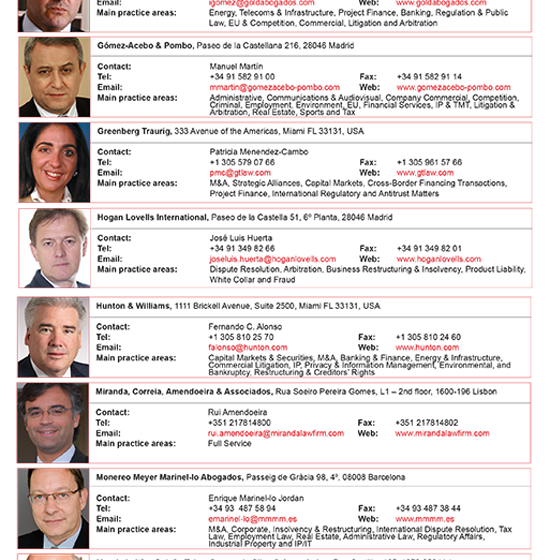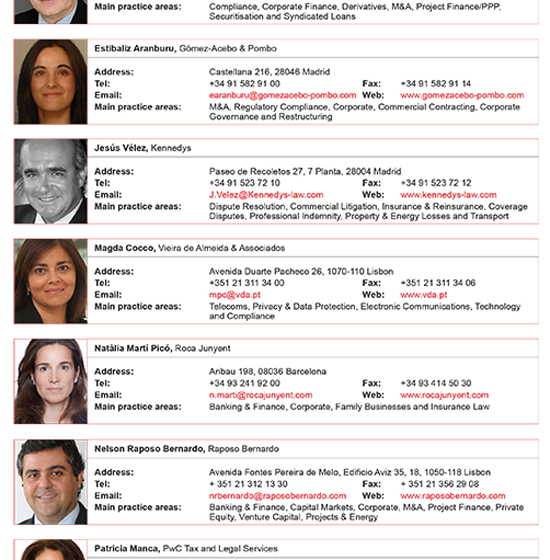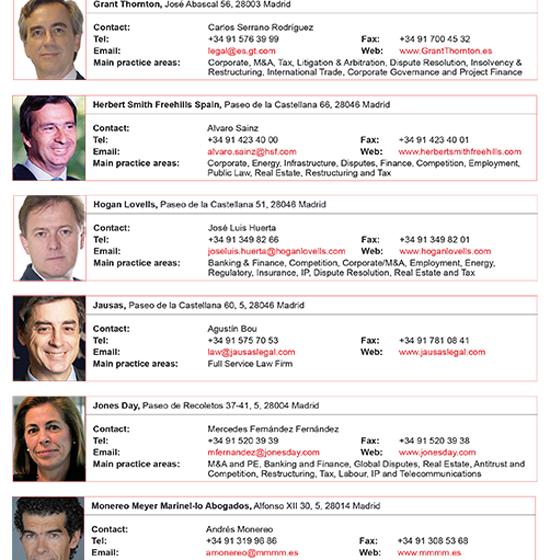Last year, Portugal wanted to increase the flexibility of its employment regulations and by doing so would correspondingly increase its competitiveness. A year later some labour law reforms have been approved, mainly related to the
Despite the European crisis and the slowdown of the US economy, much of Latin America continues to experience economic growth. Many of its countries now have long-term stable economic conditions. The high credit ratings of
Iberian Lawyer recently hosted an online session with a group of leading law firms and companies to discuss the current opportunities and trends in Latin America for new investment. The session was supported by Basham,
Iberian Lawyer recently hosted an online session with a group of leading law firms and companies to discuss the current opportunities and trends in Latin America for new investment. The session was supported by Basham,
Welcome to the Iberian Lawyer email alert, bringing insight and analysis for lawyers who advise on international business interests in Spain and Portugal as well as the increasingly global interests of Iberian businesses around the
The downturn has helped drive a dramatic rise in demand for forensic and expert witness expertise, and as the market evolves, it is also becoming more sophisticated and stratified.

















